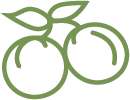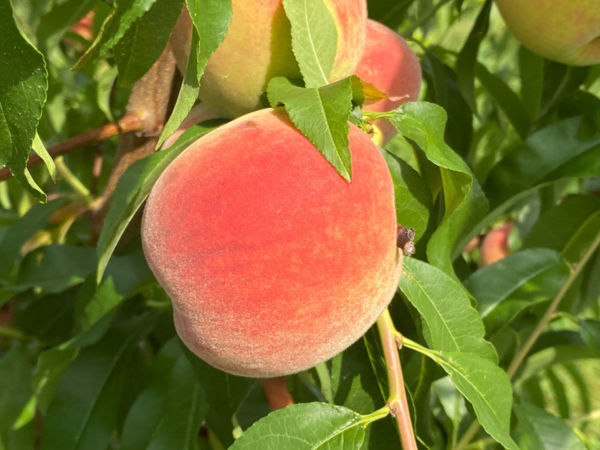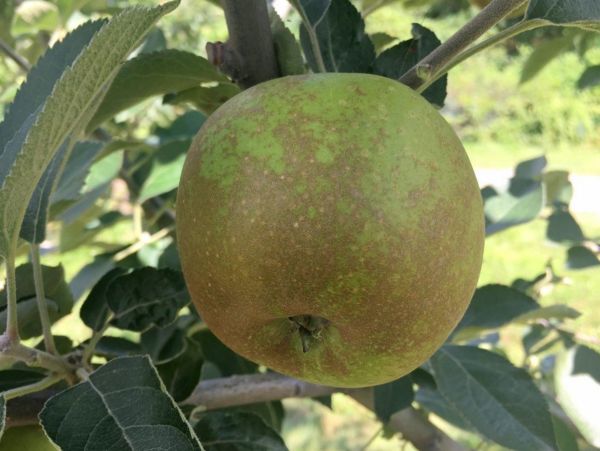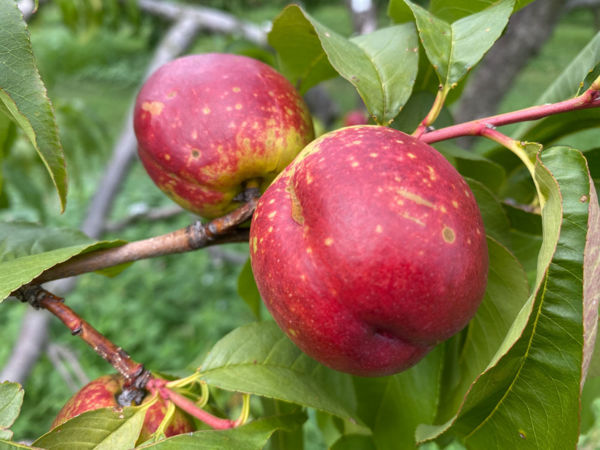An attractive, highly disease-resistant apple, ideal for organic growers.
G.202 Apple Rootstock (Spring 2024)
A Geneva release in the M.26 class that is resistant to woolly apple aphid. Also known as Geneva 202.
G.202 will produce trees similar in height to M.26, but in areas where woolly aphid is a problem, G.202 is the best choice. This rootstock is slightly less productive than others in the Geneva series, but it has the trademark Geneva disease resistance: it is resistant to fireblight and crown rot, and it is tolerant of replant disease. Roots will have good anchorage, but we recommend additional support. Burr knots are not common, and suckering is minimal.
Cornell recommends this stock for high-density processing orchards or for Red Delicious plantings. It is also useful in stressful climates like California, Utah, Colorado or Chihuahua. In more traditional climates like NY and with good soils, Cornell recommends high-density planting at 3.5-5' x 12-13' (1037-838 trees/acre) for fresh fruit cultivars, and at 4.0-4.5' x 13-14' (838-745 trees/acre) for processing cultivars.
The resistance of G.202 to woolly aphid was discovered by a team of researchers from New Zealand and Brazil. At the urging of nurseryman Andy McGuire, Dr. Cummins released the rootstock to meet the urgent need for a WAA-resistant stock in the Southern Hemisphere. G.202 is a cross of Malling 27 and Robusta 5.
Volume Pricing
| Quantity | G.202 Apple Rootstock |
|---|---|
| 1-24 | $4.45 |
| 25-99 | $3.95 |
| 100-299 | $3.45 |
| 300+ | $2.95 |
Rootstock Details
Category: apple
Tree Height & Spacing
glossary
Rootstock size class: Semi-Dwarf (40% of Standard)
Tree spacing: See details
Good for wildlife planting?
Properties
Precocious: Y
Anchorage: average
Burr Knots: Y
Suckering: N
Virus: N
Brittleness: N
Ease of Grafting: Y
Diseases & Pests
glossary
Fireblight: Very Resistant
Phytophthora (Collar Rot, Crown Rot, Root Rot): Resistant
Replant Disease: Resistant
Woolly Apple Aphid: Very Resistant
Featured Products
A few things we're loving right now...
A full-flavored, freestone white peach.
One of America's oldest apples, good for storage, baking, and cider.
A widely-grown, large, yellow-fleshed nectarine.













